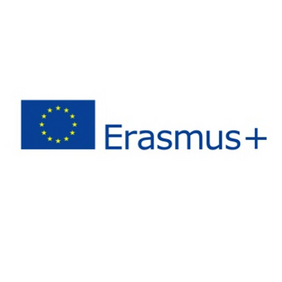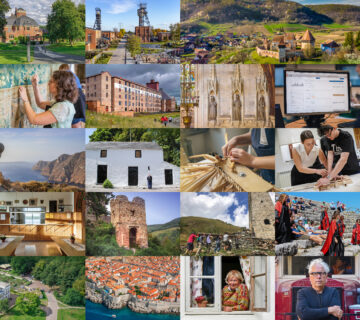The Association of Cultural Heritage Managers (KÃME) in co-operation with the Cultural Heritage Studies Program at the Central European University (CEU) and the Danube-Ipoly National Park Directorate (DINPI), started to develop a new education and training center at an organic farm close to Budapest, the capital of Hungary.
One of the most important values of this project is that natural and cultural heritage are going to be managed and interpreted together in a holistic way leaving behind the traditional split between culture and nature.
Even the location of the project is remarkable in itself. Nowadays the farm focuses, amongst other things, on goat cheese production, with a fully organic procedure. In addition, several forms of archaeological activities (e.g. environmental and landscape archeology) are carried out here, as the area spatially coincides with a medieval Cistercian manor. Ruins of glass production workshops, burials, traces of a complex water management system, and a little church are the main visible remains of this period. The farm lies in the middle of the Pilis Biosphere Reserve, one of the biggest boreal forest areas in Europe. The unique quality of the area is a consequence of an exceptional history: it was the hunting area of Kings for centuries.
Our goal is to interpret the complex interactions among the forces of nature and the people living in the area. The different forms of land-use; the rare management schemes such as forest grazing; production of traditional local fruits; organic cheese making, and sustainable building are among our topics.
We target not only the tourists and the locals with our messages and services, but also academics, heritage professionals and students. Both CEU and KÃME are using the center as a permanent professional field study site of learning management and interpretation.
KÃME’s goal is the establishment of an autonomous education center, which is the first example of a holistically-planned interpretive heritage site in Hungary. Currently our consortium, together with the German KON-TIKI office, is working on the interpretive master plan.
Part of our ambition is to build a network of professionals who share this approach to interpretation in Hungary and in the Central and Eastern European Countries (CEEC). We are constantly looking for institutions and companies who can be partners for realizing our programs and goals.
The project is supported by Deutsche Bundesstiftung Umwelt (DBU – dbu.de). More info will be available on our website (www.heritagemanager.hu) and on the project website (glasshill.eu) soon.
To cite this article:
BÅczen, Ã. & Kuslits, B. (2015) ‘Sustainability, heritage management and interpretation: KÃME is working on the development of a new education and training center in Pomáz, Hungary ‘. In Interpret Europe Newsletter 4-2015, 13-14.
Available online:
https://www.interpret-europe.net/fileadmin/Documents/publications/Newsletters/ie-newsletter_2015-4_winter.pdf




